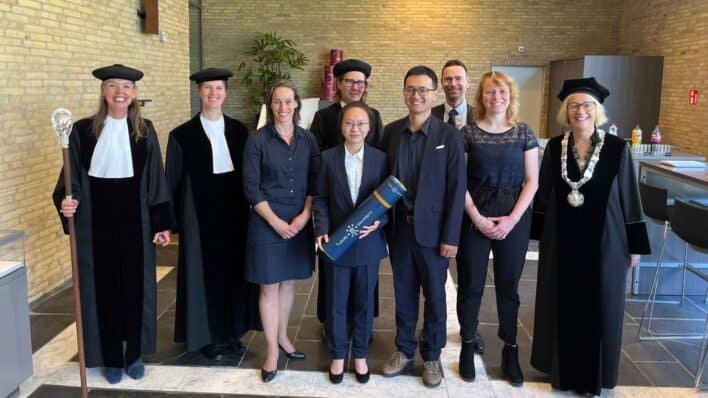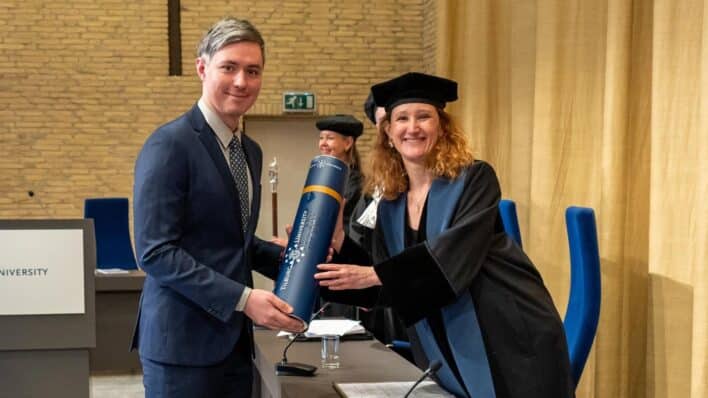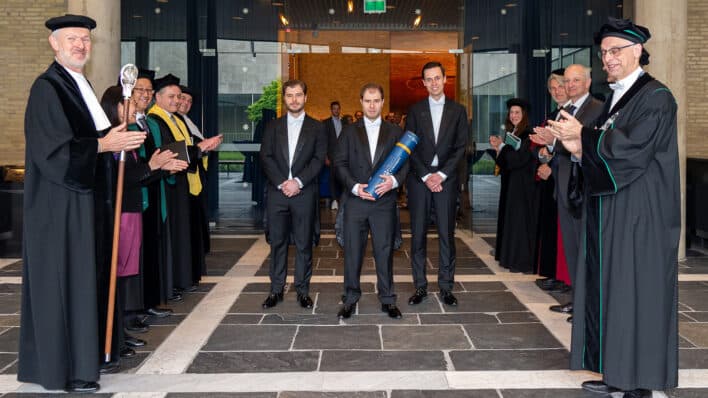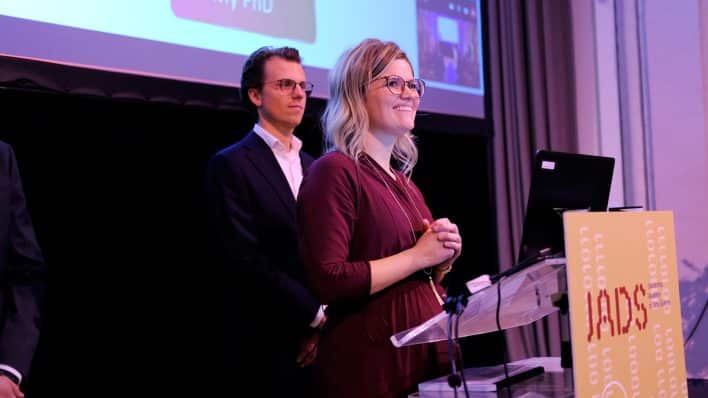Behind the PhD: Bridging disciplines to empower digital privacy
Posted on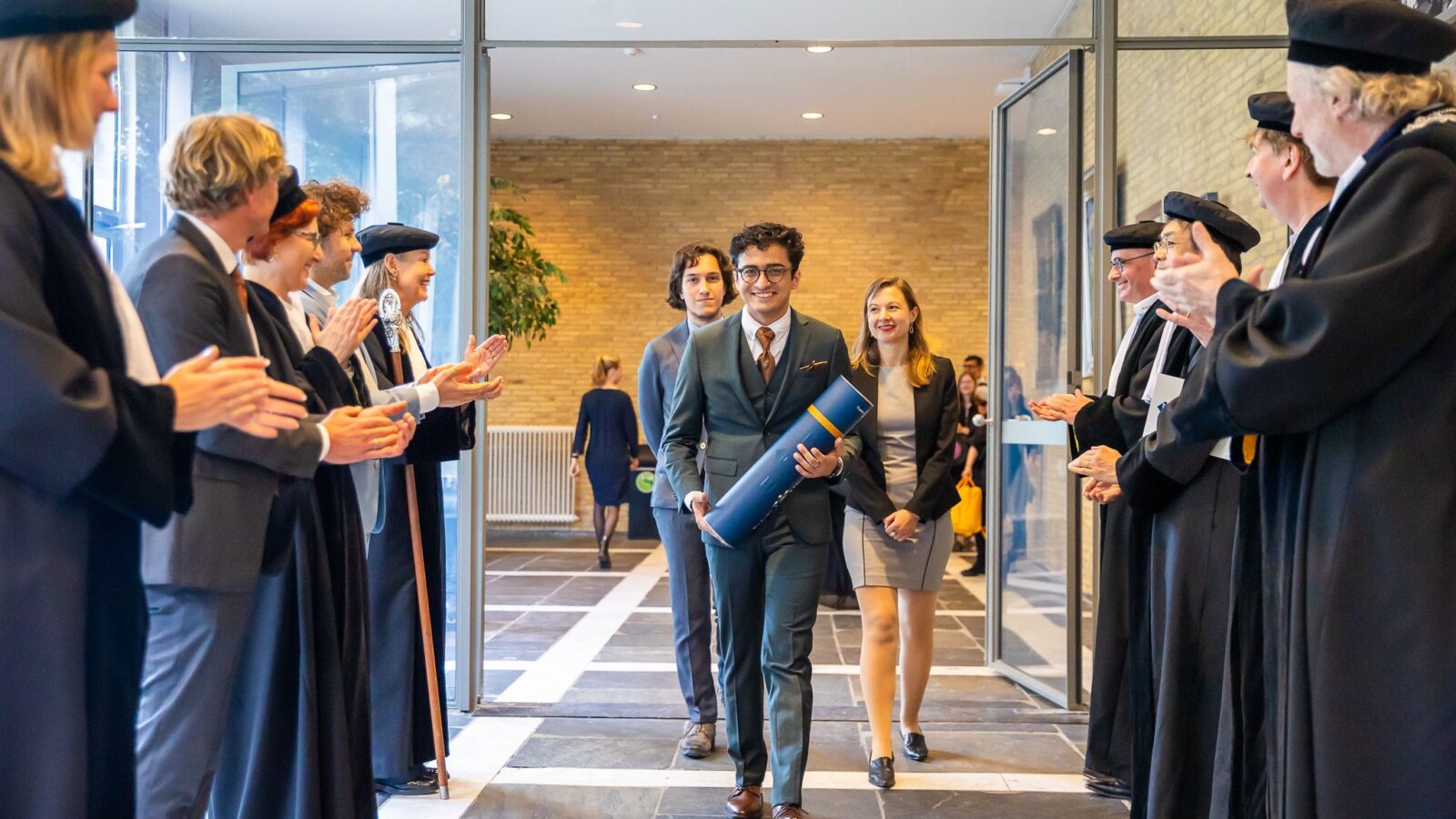
Digital services, offering great convenience and utility, have become integral and crucial companions to our daily lives. So much so that it is perhaps hard to imagine our life without them anymore. However, we sometimes use these services without fully understanding their implications on, among other things, our privacy. Consider, for example, the cookie banners that have become a common feature on every website accessible in the European Union. These cookie banners are techno-legal artifacts, software programs designed and functioning per the publisher’s Terms of Service and regulated by law. They are supposed to help users maintain the privacy of their browsing data, and to give them more control over how their personal data is processed. And yet, these banners are rarely read, oft ignored, and have even become a source of annoyance for many. In such a context, how can we really enable and assist users in exercising effective control over their personal data? Kartik Chawla addresses this question in his interdisciplinary dissertation by studying and designing user-focused Privacy Enhancing Tools, software that assists users in negotiating, monitoring, and enforcing their privacy preferences.
Why did you choose this research subject and what makes it so fascinating?
“As someone coming from a legal background but with a strong interest in technology, I find it fascinating to look at policy statements, such as ‘users should have control over their personal data’, and to really break them down into what they require in practice, from legal, technical, and economic systems, and from users. This is, to me, a captivating and compelling challenge, and one that I think is incredibly important to keep in mind for empowering digital actors in the digital age not just for privacy but for so many other policy objectives – for example, how do we make our digital society more sustainable, or how do we empower consumers and companies in managing digital contracts? And it is a challenge that requires intense coordination between different disciplines and sectors to address effectively.”
Which challenges did you meet along the way and how did you overcome them?
“The greatest challenge I faced along the way was the interdisciplinarity of my work. It feels like every discipline almost speaks a different language – they certainly use different dictionaries and glossaries. I made it through mainly thanks to a lot of patience, deliberate progress, and the kind help of many, many people, and honestly that journey itself was absolutely worth it.”
What is the impact of your work in the real world?
“As digital citizens, our online interactions are increasingly shaped by what I call ‘Digitally Intermediated Standard Agreements’. To empower users, it’s crucial to carefully design and study these agreements, considering their impact on individuals and society. This requires an interdisciplinary approach that includes insights from software engineering, law, economics, and policy.
Privacy and cookies are a prime example, showing how technical design driven by economic interests can greatly affect users’ ability to control their data. Yet, there is a lack of interdisciplinary work in this area.
My research addresses this by providing a Typology of Control Tasks for managing personal data, identifying Barriers and Objectives for designing Privacy Tools, and creating a Taxonomy of Privacy Enhancing Functionalities. These frameworks help developers, academics, lawyers, and policymakers better communicate and compare tools to a normative standard. My work also highlights the importance of considering monitoring and enforcement, not just notice-and-consent, in privacy tool design. I validate a new Privacy Tool based on these insights and show how future interdisciplinary work can be structured using a design science methodology.
This framework aims to lead to more user-friendly Privacy Tools, enhancing users’ control over their personal data in digital interactions. Ultimately, I hope my research brings more attention to the need for thoughtful design in Digitally Intermediated Standard Agreements.”
What are your plans after your PhD?
“I plan to continue to put my interdisciplinary skills to work! I’m particularly interested in studying and developing impact-oriented digital (legal) assistants and architectures, to try and make the internet a little bit more friendly and to help different actors navigate complex data ecosystems and legal systems. I have recently started working as a Scientist Innovator at the Data Ecosystems department at TNO, where I am getting to do some fascinating work, and I look forward to what the future has in store!”
